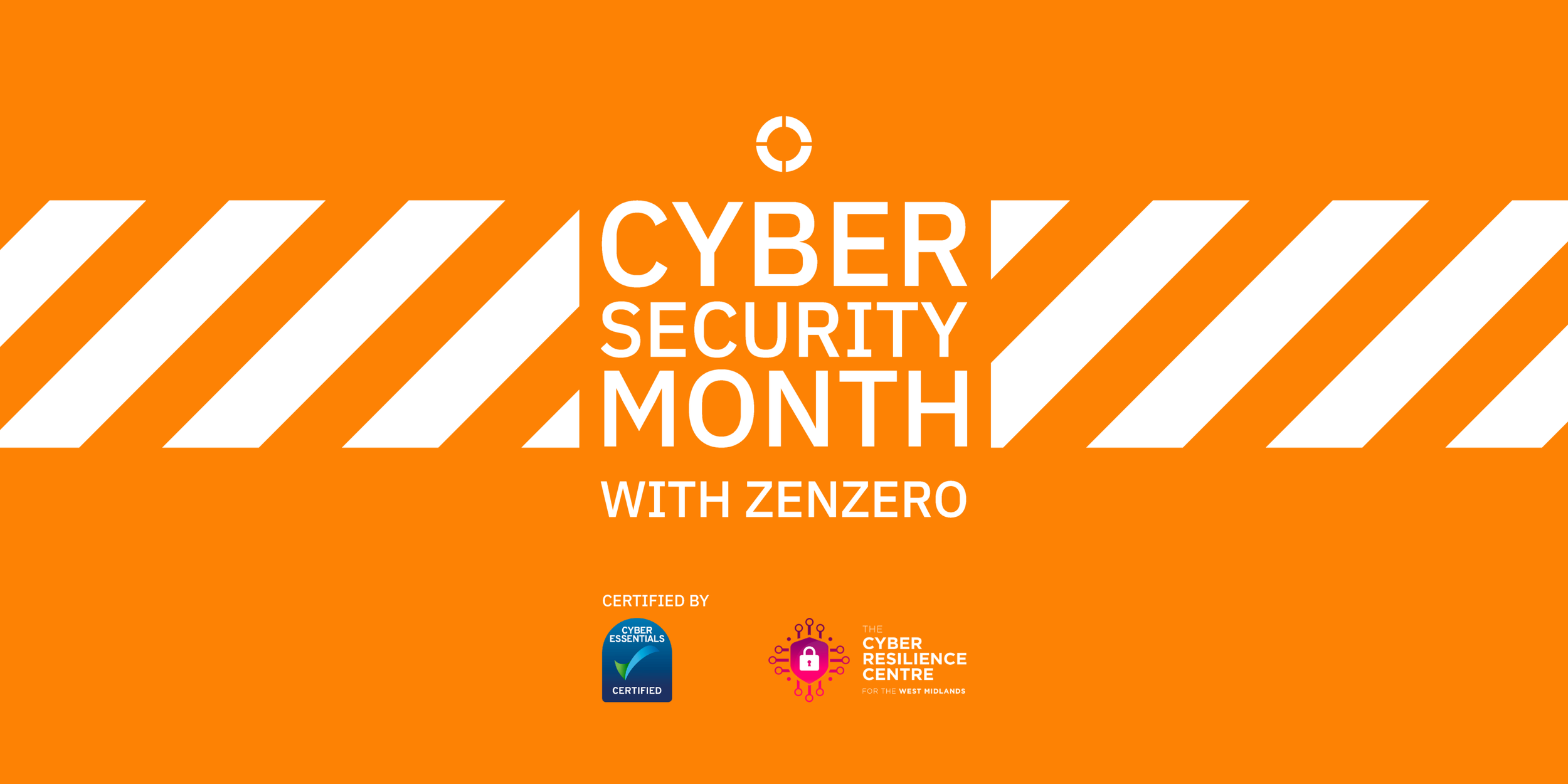Cyber Security Month
Skulls, spiders and... cyber security! It’s October!
October is Cyber Security Month, and this year's themes are phishing and ransomware. The CyberEdge 2022 Cyberthreat Defence Report found that more than 80% of UK businesses were the victim of a successful attack in 2021/2022. It’s important to practice good cyber hygiene to protect yourself, your family, and your business. Catherine Brabander from Surrey & Sussex Police and Zenzero’s Cyber Specialist, Russell Howarth share their top tips to prevent cybercrime:
Consider a cyber security audit.
Think about the accounts you may have. Without knowing what you have, you won’t know what you need to protect. Once you have done an audit, you will have the data needed to conduct a good assessment of the necessary steps needed to secure your accounts.
Use a really strong password.
Passwords are the key to online accounts so it’s important to use 3 random words - that aren’t linked to you. For example, coffee-chair-door. It’s important to use a combination of capital letters, lowercase, special characters and numbers. Three random words will make it difficult to guess and make it harder for hackers to get into your accounts.
Turn on MFA.
Using MFA provides an extra line of defence in the instance of your password being hacked. Use 2-step verification or multi-factor authentication on your account. If somebody has your password, they won’t be able to gain access to your account because you will have a second step, providing an extra level of security.
Back up your important pictures, documents, files
– anything you wouldn’t want to lose if a hack or breach were to happen. This will make the recovery process a lot easier if your organisation suffers a breach.
Be aware and vigilant - phishing attacks are on the rise.
There are so many online scams around these days that you’re probably already well aware of the risks of clicking on unsolicited links. Take five minutes to look at links, spelling, grammar and attachments. Ask yourself, “why would this person be contacting me?” Always review a messages before you click on any links.
Avoid using public Wi-Fi.
The same features that make free Wi-Fi hotspots desirable for consumers make them desirable for hackers. If you are working on anything that involves using personal and sensitive data, avoid using public Wi-Fi. It’s great for surfing the internet, but it’s not secure so ensure you’re using VPN’s or save working on anything involving sensitive data until using your secure home or office Wi-Fi.
The Cyber Essentials Programme carried out by NCSC (National Cyber Security Centre).
The programme is an effective, government backed scheme that will help you to protect your organisation against cyber attacks. Consider it an MOT for your company around cyber.
Find out more
For more information on cyber security, download our 7 Cyber Questions To Ask Your IT Provider.
To discuss your organisation’s cyber approach in more detail, book a no-obligation appointment with Russell.

